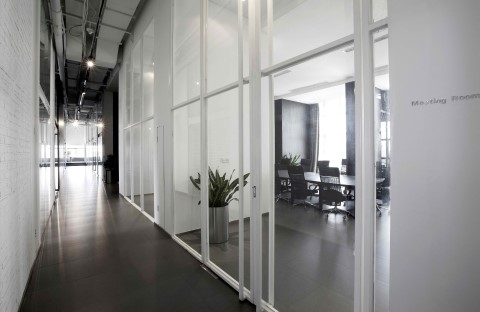
Can co-working spaces revitalise Hong Kong’s office scene?
Firms are eager to expand with flexible working spaces.
When Standard Chartered Bank wanted to establish a fintech accelerator programme in Hong Kong, it partnered with the co-working space provider TusPark Global Network to conduct its office operations in Kwun Tong. The banking giant, however, is just one among the hundreds of fintech developing firms who are eager to expand using flexible working spaces.
According to Yasas Wickramasinghe, an analyst from Colliers, the trend illustrated by the move by Standard Chartered will add to the increasing demand for co-working spaces in Hong Kong.
According to Colliers International data, flexible working space operators have secured 252,000 sq. ft. (23,412 sq. m.) of space in Hong Kong over the first five months of 2016 alone, compared to 400,000 square feet (37,160 sq. m.) of traditional office space secured in the territory under new leases in 2015.
“The bulk of the demand is likely to be in Hong Kong’s core and fringe CBD, including Central, Admiralty, Wan Chai, Causeway Bay, and Sheung Wan, with some trickledown effect into decentralised locations, particularly from incubator programmes,” Wickramasinghe says. Additionally, he adds companies such as SunGard, CA technologies, and Temenos Group AG are also predominantly located in Central and Wan Chai, with a smaller presence in decentralised locations such as Island East and Tsim Sha Tsui. “We have found that a considerable number of these companies use serviced office spaces in Central and Causeway Bay,” he adds.
But why do these companies prefer coworking spaces and serviced offices over traditional workspaces? Wickramasinghe says the major reasons include reduced capital expenses, flexibility in office size and lease term, networking opportunities, the sense of community created through the agglomeration of similar industries, as well as the prospect of a prime location at a competitive price.
Additionally, it isn’t entirely correct to assume that the working environment provided by these flexible working spaces are necessarily inferior to those provided by traditional office spaces. According to a separate report by Colliers, on the contrary, certain flexible working companies pride themselves on only leasing space in prime buildings. “In Hong Kong, for example, Servcorp occupies 22,000 square feet of space in Two IFC, the most prestigious building in the territory,” the report noted.
Meanwhile, Simon Smith, senior director of Savills Asia Pacific, concurs with Wickramasinghe, affirming co-working spaces are emerging as a new demand driver for Hong Kong’s thriving office market. However, Smith says the model is not without its challenges. For instance, he notes that in the traditional business districts, high
rents mean that operators are struggling to make a return. “Only in the more remote locations does open planning make sense but the appeal is limited,” he adds.






















 Advertise
Advertise








